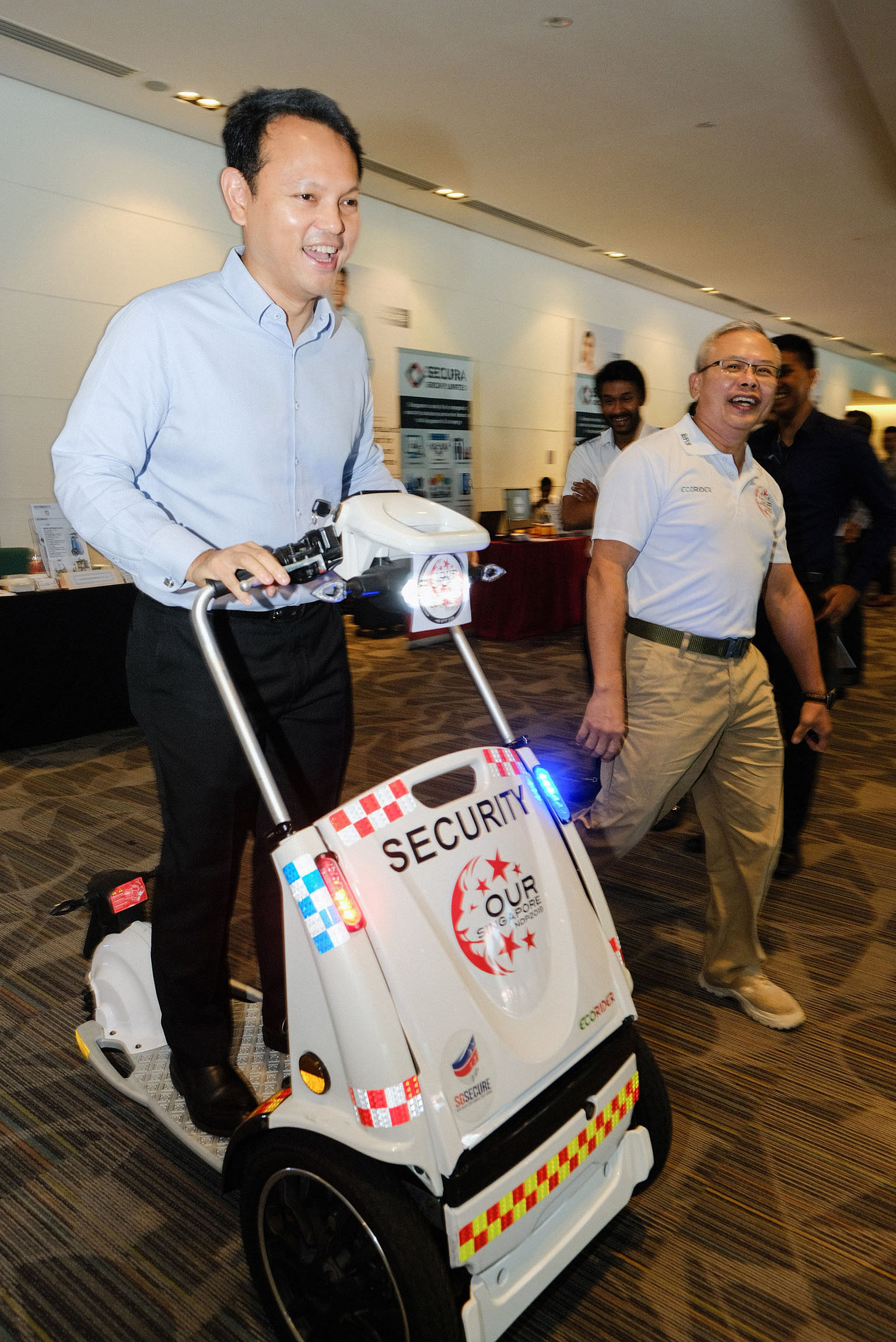Security sector sets rules for data collection
Association issues guidelines on handling of NRICs, personal information under PDPA
Sign up now: Get ST's newsletters delivered to your inbox
Private security officers, when detaining individuals for criminal offences, should not collect, use or disclose a suspect's full NRIC number, as this may be in breach of the Personal Data Protection Act (PDPA).
However, they are allowed to collect NRIC numbers for visitor entry into sensitive places such as data centres or bank vaults, due to the significant security concerns involved.
These are among the scenarios listed in a guidebook for security officers on PDPA regulations related to the collection of NRIC and other national identification numbers.
The guidebook was launched yesterday by the Security Association Singapore during its annual Security Officers Day Awards ceremony, which was held at Temasek Polytechnic this year.
The launch comes ahead of laws scheduled to kick in on Sept 1, which would make it illegal for organisations to collect, use or disclose NRIC numbers, or make copies of the identity card.
Under the PDPA, security agencies are obliged to ensure that any personal data - such as NRIC, birth certificate, foreign identification and work permit numbers - is sufficiently secure and cannot be accessed by unauthorised parties.
Security agencies must also ensure that the data collected by their officers is not retained for a period longer than what is necessary for legal or business purposes.
-
134
Number of licensed security agencies that applied to the Ministry of Manpower last year to allow their officers to work longer overtime hours than what is legally permissible - a drop from 174 in 2017.
12
Maximum number of working hours a day for security officers under the Employment Act. Overtime hours cannot exceed 72 hours in a month.
Where it is necessary to verify a person's identity, the guidebook suggests that officers may instead visually inspect the suspect's NRIC and take note of his partial NRIC number, mobile number, full name or postal code of his registered address.
At the event, Minister of State for Manpower and National Development Zaqy Mohamad revealed that the number of licensed security agencies which had applied to the Ministry of Manpower (MOM) to allow their officers to work longer overtime hours than what is legally permissible fell from 174 in 2017 to 134 last year.
Under the Employment Act, working hours for security officers, including overtime, cannot exceed 12 hours a day. Their overtime hours cannot exceed 72 hours in a month.
Companies that require employees to work longer hours must apply for an overtime exemption from MOM, which will allow employees to work up to 95 hours of overtime a month, or up to 14 hours a day.
However, from Jan 1, 2021, MOM will no longer grant overtime exemptions.
"Fatigue can affect the health and safety of workers, and the removal of overtime exemption will enable security officers to get more rest," said Mr Zaqy.
He added that security agencies can tap government grants - such as the Enterprise Development Grant or Productivity Solutions Grant - to adopt technology to increase productivity, instead of relying heavily on manpower and overtime hours.

Metropolis Security Systems general manager Lek Shao Hua said: "Some officers like to come back to work on their rest days, and some agencies would pay up to 1.5 times more for overtime hours. So it was quite painful at the start."
However, he said the Progressive Wage Model for security officers, which was introduced five years ago, has helped to make up for the shortfall by increasing basic pay.


